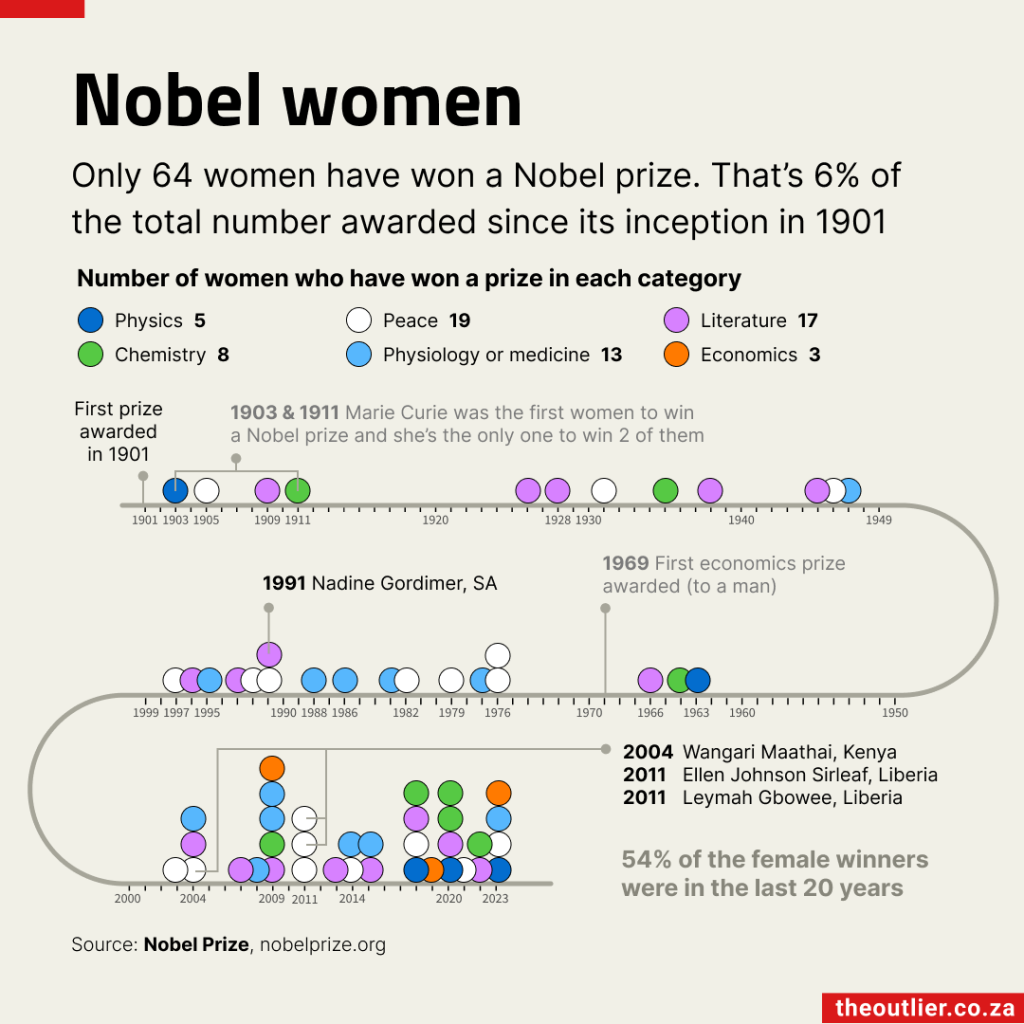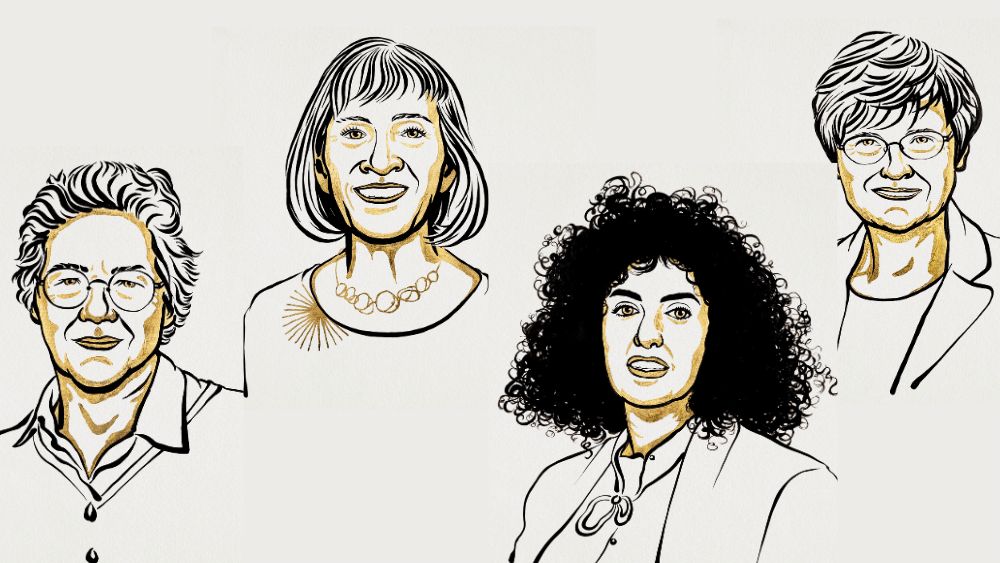Since 1901, only 65 prizes have been awarded to women, 6.5% of the 1,000 awarded in total. In 2023, four of the 11 winners were women, making int one of the best years for women in history of the Nobel prize.
American Claudia Goldin won the economics prize, the third woman ever to do so; Iranian Narges Mohammadi won the peace prize; Hungarian Katalin Karikó won the physiology or medicine prize; and French scientist Anne L’Huillier was one of three scientists to win the physics prize.
The peace prize has been awarded to 19 women, three of them Africans: Kenyan Wangari Maathai in 2004, and Liberians Ellen Johnson Sirleaf and Leymah Gbowee in 2011. South Africa’s Nadine Gordimer is one of 17 female Nobel literature prize winners.

Open an interactive version of the chart: Hover over the points to find out who won the Nobel prize in a year (mobile-friendly).
Marie Curie was the first woman to win a Nobel prize in 1903, in physics, for her research in radioactivity. She won it again in 1911 for chemistry. Her daughter, Irène Joliot-Curie, also won the chemistry prize in 1935, for her work in radioactivity.
More than half of the Nobel prizes that went to women were awarded in the past 20 years. The average age at which women win their Nobel prizes is 58.
Note: Republished from our archives to mark Women’s Day in South Africa. See the original post from 10 November 2023 here or download the chart from the Our World in Charts gallery here
